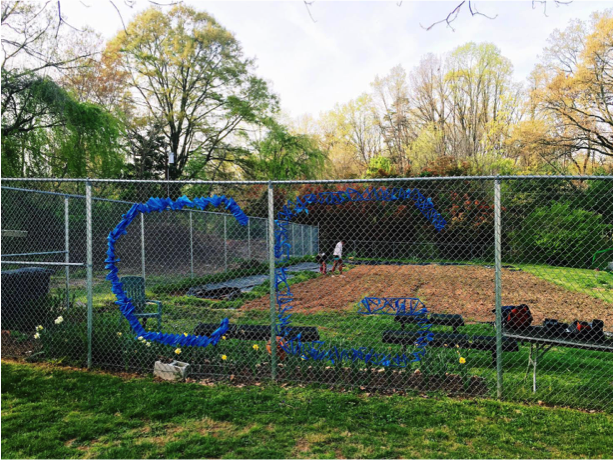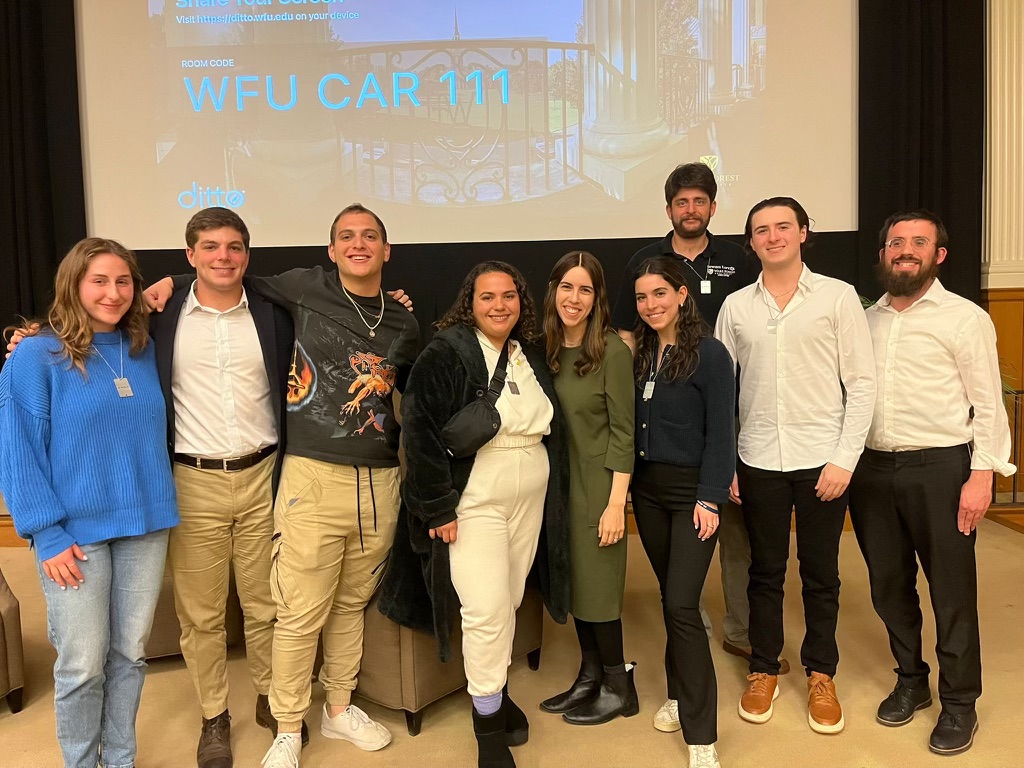Just across the bustling Polo Road, a few steps away from the stresses of campus lay a quiet, lush, green haven.
The Wake Forest Campus Garden serves as a canvas for volunteers to harvest organic vegetation and to learn more about sustainable plant life. Approaching the garden, guests are greeted with a bright yellow sign to warmly welcome them into the space.
“One of my favorite things is watching someone eat something off of the ground because so few people get to see where food really comes from,” said Campus Garden intern, Akua Maat. “People are always uncomfortable at first because they don’t understand that this is real food.”
The Office of Sustainability at Wake Forest works to promote university-wide environmentally conscious initiatives to benefit both the campus community and the planet as a whole. One of these initiatives is the campus garden, where volunteers help produce organic vegetation.
Scientists widely accept the fact that greenhouse gas emissions are one of the direct causes of climate change. Relating to the Campus Garden, the Huffington Post notes, “Organic agriculture uses 45 percent less unsustainable energy than conventional agriculture. For similar reasons, organic farms produce 40 percent less greenhouse gas emissions than conventional farms.”
Thus, in a small way, the garden benefits the earth in more ways than just offering consumers an organic food option.
Maat is one of three Campus Garden interns joined biweekly with other volunteers to plant and harvest the space. Another intern, sophomore Megan Blackstock majors in chemistry with a concentration in biochemistry and a minor in biology.
“As of right now, I don’t see any relation between chemistry and gardening,” Blackstock said. “I know I have a passion for chemistry and I have a separate passion for sustainability.”
While Blackstock studies in the science field, Maat is a junior, double majoring in Latin and women and gender studies. The passion for the Campus Garden is inherent and separate from their usual coursework.
However, the work cannot be carried by a small number of passionate volunteers. The garden is large, with many plots intended for a variety of fruits and vegetables. Currently in planting season, volunteers meet twice a week to till the ground, redesign the garden and care for the growing produce.
“I wish more students volunteered,” Akua said. “I love to have people out here, its such a welcoming environment and a break from what is traditionally Wake Forest.”
The issue of volunteering may go deeper than just a lack of time or interest to spend gardening. Students on campus appear to not know about the garden or much about sustainability as a whole.
“I have never heard of the campus garden,” said freshman Hannah Preiser. “I have heard of Reynolda Gardens if that is kind of the same thing.”
Responses similar to this are very common, and for the volunteers who spend countless hours at the garden, a lack of knowledge about sustainability on campus can be frustrating.
“I think a lot of people don’t understand that this is an organic, hand-cared for garden,” Akua said. “It is not going to look like Reynolda Gardens. Plant life is beautiful, but nature has a mind of its own and that’s how we get our food.”
Nonetheless, the Office of Sustainability is dedicated to raising awareness about the Campus Garden by holding more events for students, faculty and members of the community.
For example, earlier in the month on March 2, the Campus Garden partnered with Outdoor Pursuits to host a s’mores event. Later, on March 20, an event was held at the garden to commemorate the spring equinox and more than 70 people attended. There seems to be a relationship between increasing events held at the garden and overall knowledge about the initiative.
“When I first came on, we were averaging maybe two to five students each gardening session,” Blackstock said. “We are now seeing an increase as we do more activities and spread awareness. When we do ‘fun’ things, we see more students come out.”
It seems that the more events held at the garden may be the best solution to a lack of awareness about the sustainable food initiative. The benefit of increased awareness about the garden is that those who volunteer have a better understanding of the advantages of organic gardening in curbing climate change.
“I wish more people knew that there are different ways to be a part of sustainability,” says Akua. “Clearly climate change is a big problem but there are so many things we can do on a smaller scale to help ameliorate this issue that is worldwide climate change.”













